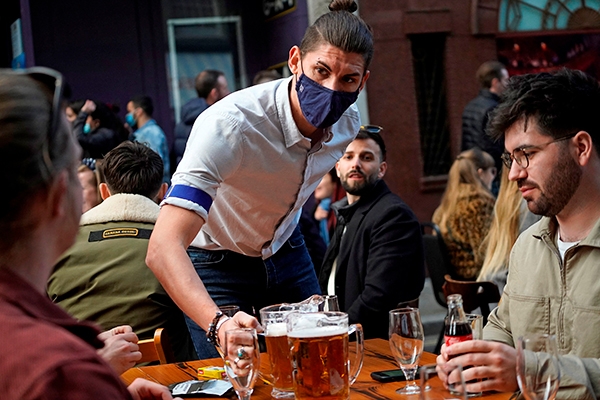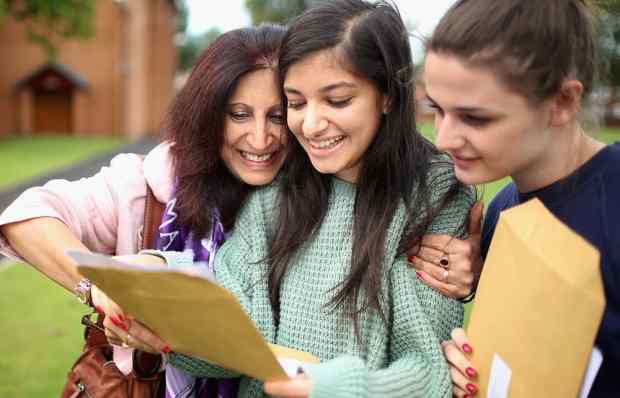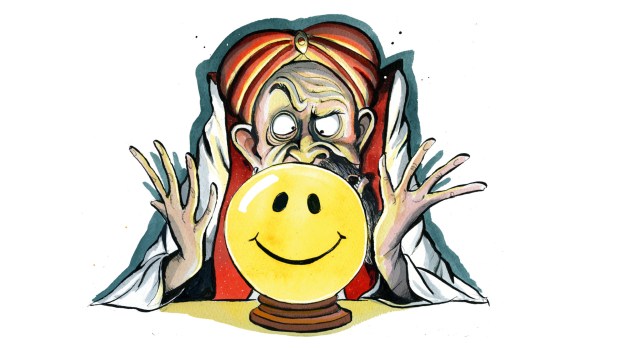It seems all but impossible to convince government scientists of the wisdom of proceeding with the final lifting of Covid restrictions on 21 June. No matter how much progress is made, officials seem to find a new reason to delay — a new variant or some similar development always pops up. The Indian variant has now become the dominant strain in Britain. The question is whether that should change things.
When the government’s roadmap was agreed, with 21 June as the end date, scientific advisers on the Sage committee drew up five scenarios for hospitalisations. None of them imagined that by this stage the figure would be as low as it stands now. Cases are rising — but cases are not translating into hospitalisations as they once did. That is to say: the vaccines are working as expected. Covid is losing its sting. The number of people in hospital is below half that anticipated by the most optimistic Sage scenario.
If vaccinations have succeeded in decoupling new cases of infection from the levels of serious disease, we can no longer be said to be in the grips of a pandemic — more in a situation of endemic background infection. Unless we have set ourselves the impossible task of eliminating all Covid-related illness, at some point we will have to call a halt and say that we can live with the problem — and that we can no longer delay the repair our society and economy so urgently needs. There are millions out of work on furlough: it is time to let them get on with their lives.
As it stands, the Prime Minister still appears to be confident of going ahead with the final stage of his roadmap back to normality in just over a fortnight’s time. There will be huge pressure on him to change his mind before the day arrives. Many will continue to say what they have said since the beginning of the crisis: that Boris Johnson is a leader with a gung-ho attitude towards public safety, who contemptuously disregards scientific advice.
The opposite is more true. Dominic Cummings’s seven-hour session before MPs may have been embarrassing for the Prime Minister on a number of fronts. But it showed that at least at the beginning of the Covid crisis, Johnson was following the advice of his closest scientific advisers to the letter. It is just that at that point — in contrast to later on — the scientists did not see closing down the economy and society as a viable way to fight Covid. On the contrary, several members of the Sage committee went on radio and television at the time to explain that suppressing the virus was neither possible nor desirable.
Blamed for being caught on the wrong side of the first wave of the pandemic, and aware that they may be asked to account for their advice at next year’s public inquiry, those same scientists would not be human if they were not tempted now to over-compensate with caution. In their defence, we have seen similar trends among scientific advisers in almost every western country: masks were once disparaged by officials; then they became mandatory.
Part of the problem is related to one of Britain’s great — but unsung — successes: our highly advanced ability to sequence Covid samples here. This has enabled us to identify new variants faster than other countries — but at the cost of being blamed for them. France’s decision to close its border to UK travellers this week is a case in point. The decision was taken, we were told, as a result of fears over the spread of the Indian variant, or the ‘delta’ variant, as the World Health Organisation now wants us to call it.
The pandemic has redefined the relationship between science and government in Britain. Scientists have been thrust into the forefront of the battle. Hitherto powerful economic advisers have shrunk into the background. Yet one thing has not changed: decisions about what precautions we take against infectious diseases, and how we cope with a pandemic, are ultimately political.
The Prime Minister has recovered his confidence in an open society in recent weeks. He’s resisted calls for local lockdowns after a scare in Bolton. He now seems to be fighting off attempts in Whitehall to introduce a domestic vaccine passport system, a needless intrusion which could lay the foundations of a biosecurity state. This might have been needed if vaccines failed. But as it stands, they appear to have been a resounding success — downgrading Covid into a virus that no longer threatens to overwhelm the National Health Service.
Covid has surprised us several times before, and all eyes will be on the data in the coming days. But we have not, as yet, had any reason to doubt that the vaccines are working as well as — if not better than — advertised. The ingenuity of British scientists and the efforts of Kate Bingham’s vaccine taskforce have built the road out of lockdown. It is up to the Prime Minister to take it.
Got something to add? Join the discussion and comment below.
Get 10 issues for just $10
Subscribe to The Spectator Australia today for the next 10 magazine issues, plus full online access, for just $10.
You might disagree with half of it, but you’ll enjoy reading all of it. Try your first month for free, then just $2 a week for the remainder of your first year.














Comments
Don't miss out
Join the conversation with other Spectator Australia readers. Subscribe to leave a comment.
SUBSCRIBEAlready a subscriber? Log in